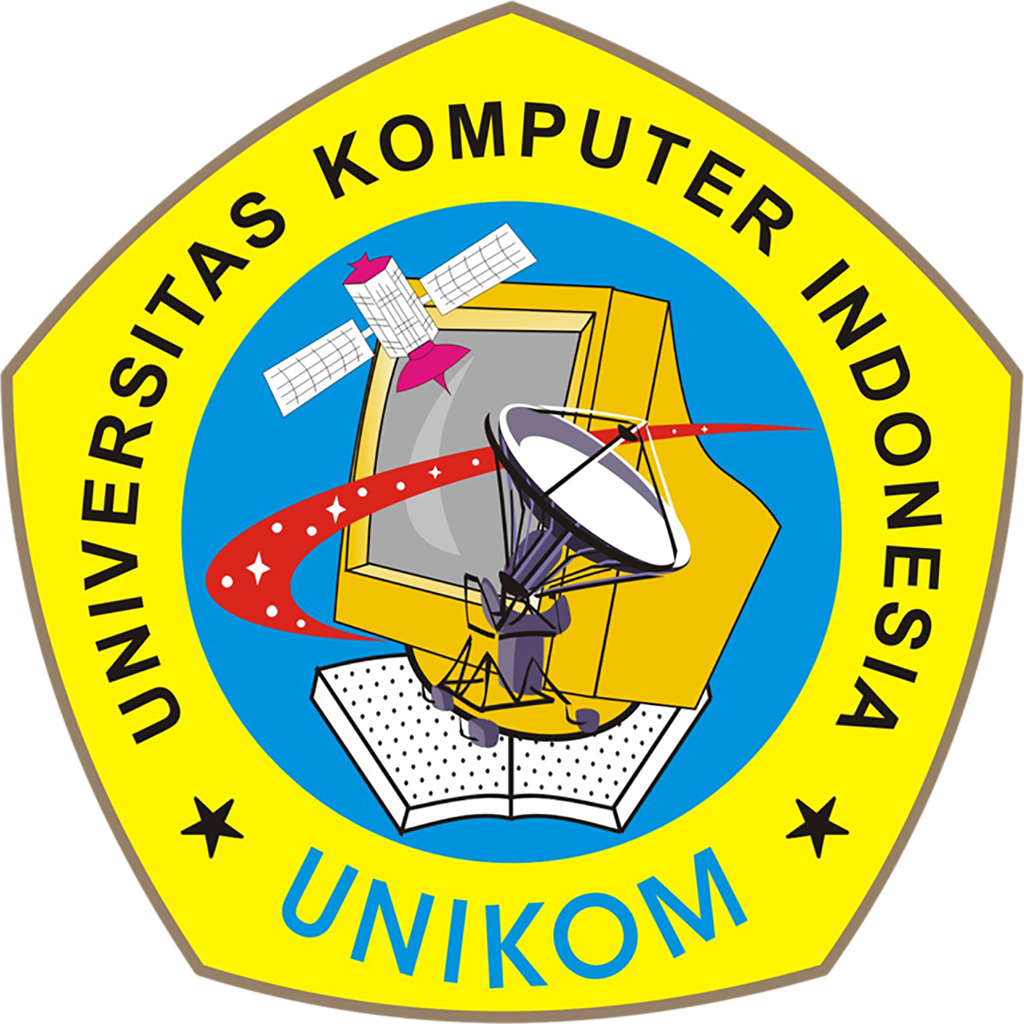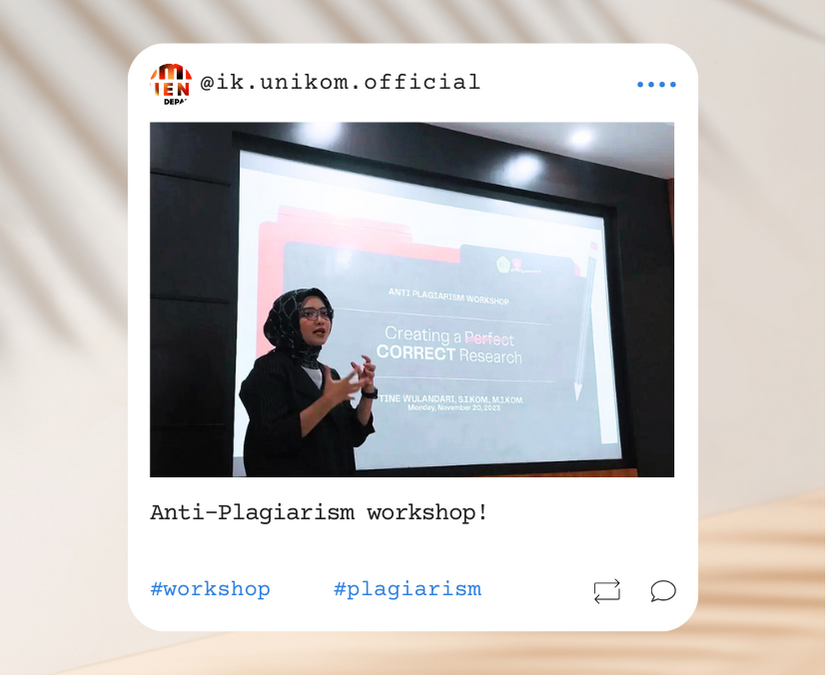BANDUNG.20/11/2023. Communication Science Department, Faculty of Social and Political Sciences (FISIP), Universitas Komputer Indonesia (UNIKOM) has held an “Anti-Plagiarism Workshop” which was held at the Communication Lab Lt. 9 Smart Building UNIKOM on Monday (20/11). This activity was attended by all Thesis Candidates in the Odd semester 2023-2024. An anti-plagiarism workshop is a training session or program designed to educate participants about the importance of academic integrity and to provide strategies for avoiding plagiarism. Plagiarism refers to the act of presenting someone else’s work, ideas, or intellectual property as one’s own without proper attribution. The primary goal of an anti-plagiarism workshop is to promote ethical writing and research practices among participants, typically students, researchers, or academic professionals.
The workshop begins by defining plagiarism and its various forms. Participants learn about direct and indirect plagiarism, self-plagiarism, and unintentional plagiarism. Understanding the different types helps individuals recognize and avoid potential pitfalls.
Workshops often emphasize the serious consequences of plagiarism, both ethically and academically. This includes damage to one’s reputation, academic penalties, and potential legal ramifications. Participants are taught how to cite sources accurately using various citation styles (APA, MLA, Chicago, etc.). This includes citing text, images, data, and other forms of information. Proper citation is a fundamental aspect of avoiding plagiarism. And it provides guidance on effective paraphrasing and summarizing techniques. Participants learn how to rephrase information in their own words while still giving credit to the original source.
In the middle of the workshop, the Speaker Miss Tine Wulandari introduced participants to plagiarism detection tools and software that can help identify potential instances of plagiarism in their work. and in this Workshop, Participants have to use the Mendeley Reference Manager. This session understanding how these tools work can be valuable for individuals in maintaining academic integrity. Participants receive tips on time management, note-taking, and other strategies to help them avoid the last-minute temptation to plagiarize.
Before the end of the workshop, there was a question and answer session where participants can seek clarification on specific issues related to plagiarism. Discussions may also provide an opportunity for participants to share their experiences and insights.
By the end of an anti-plagiarism workshop, participants should have a clearer understanding of plagiarism, the tools and techniques to avoid it, and the importance of upholding academic integrity in their work. The goal is to foster a culture of ethical writing and research within academic and professional communities.


Recent Comments